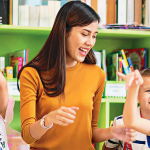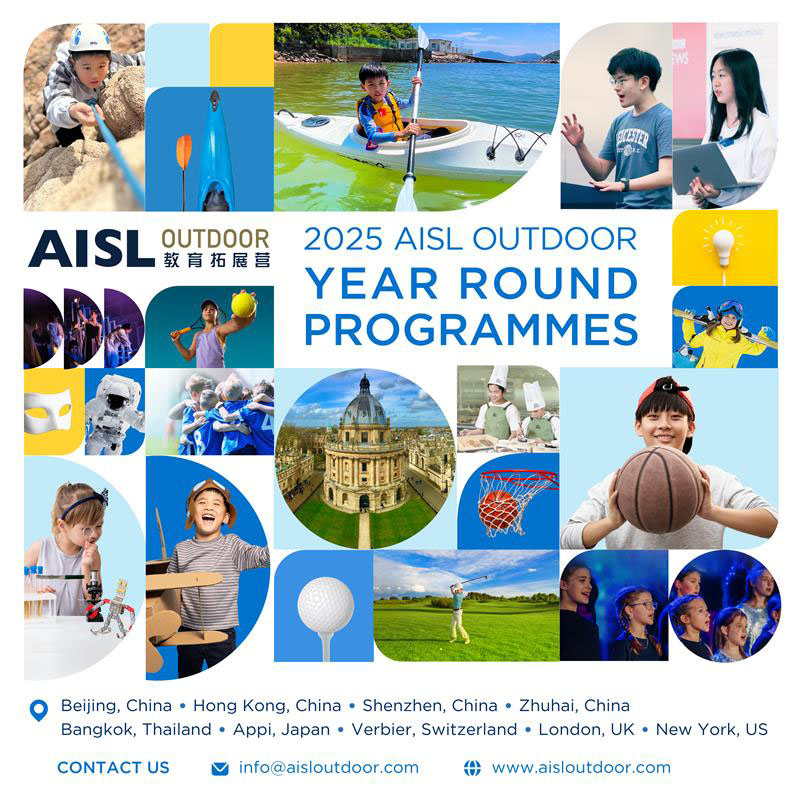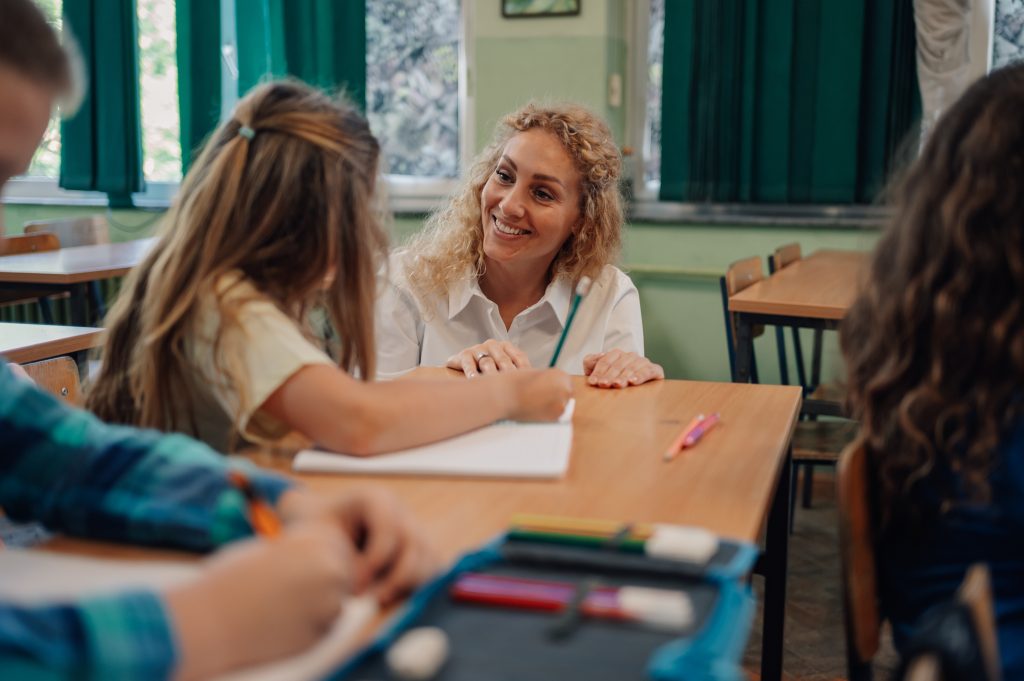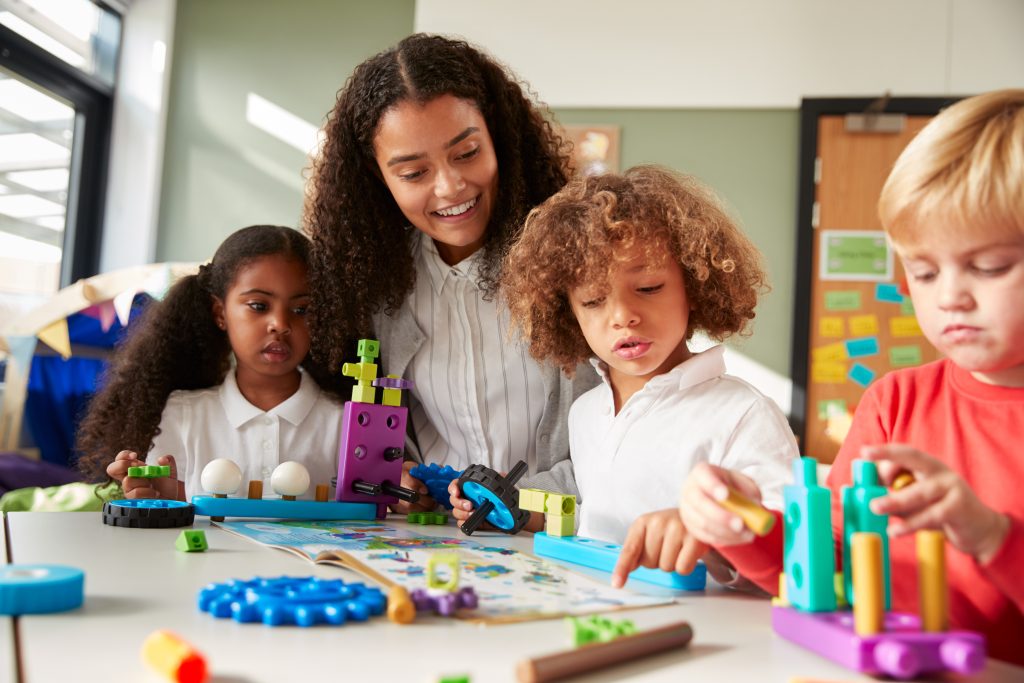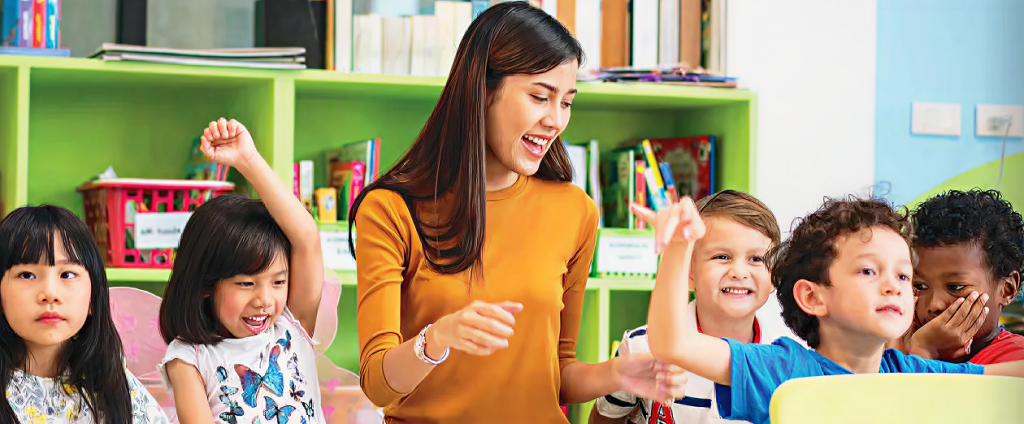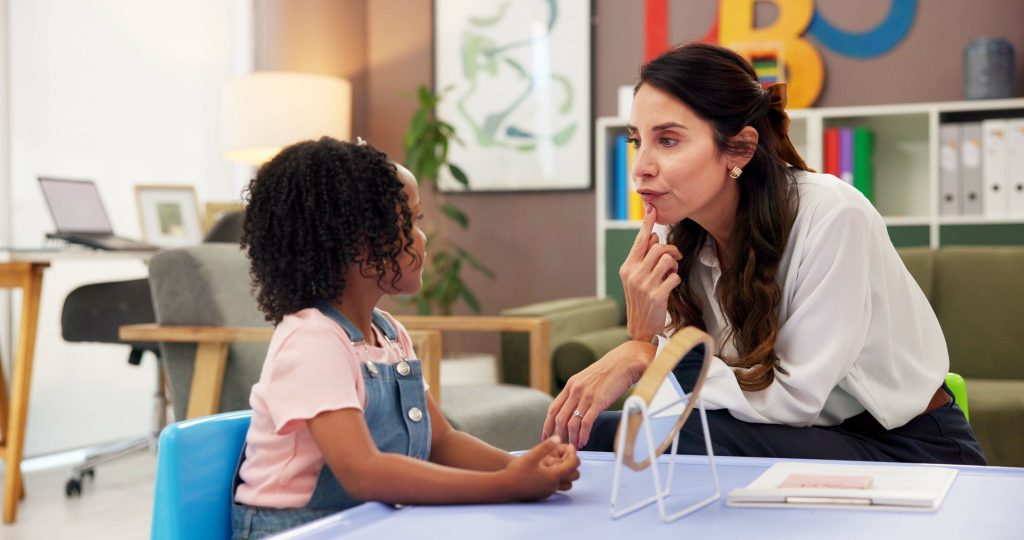Can you share a bit about Oxford University Press and its role in shaping educational resources?
Oxford University Press (OUP) is the world’s largest university press, and our global reach, depth of expertise, and clarity of purpose sets us apart. We have a clear mission which informs everything we do which is to create the highest quality academic and educational resources and services and to make them available across the world. As such, we share the uncompromising standards, defining qualities, and belief in the transformative power of education and research to inspire progress and realise human potential. This informs and inspires everything we do in designing, developing and delivering educational resources around the world.
How does OUP ensure that its learning materials remain relevant and effective across different education systems?
As a department of The University of Oxford, improving educational outcomes is core to our mission. We are committed to developing educational solutions that deliver real impact in the most effective way possible. We understand how learning differs from place to place and learner to learner. We work directly with local educators and experts to develop high quality relevant and impactful solutions that align with local curricula and access to technology to meet the varied needs of teachers and learners, wherever they are in the world. With our global presence in 159 countries and resources available in 71 languages, we find ourselves uniquely positioned to commission, design and develop content to meet the diverse needs of different markets. Everything we develop benefits from the insights and knowledge we have gained from working around the world, all underpinned by the world-class quality that our customers expect from us. In addition to this expertise, we undertake a wide range of market and pedagogical research alongside product testing to generate valuable insights and evidence about our products and services right from the initial idea and design phase through to after the product has launched. By evaluating the impact of our key products and services, we gain valuable insights that feed into the continuous improvement of our products and services. This ongoing process ensures that our content and products remain relevant and effective across the globe.
Can you give an example of a recent research-backed resource that has had a significant impact in classrooms?
At OUP, we have been publishing in cooperation with the IB since 2006 and we are the IB’s first and long-standing co-publishing partner, offering Course Companion textbooks to prepare students for success in IB Diploma Programme (DP) assessments as well as resources for the IB Primary Years and Middle Years Programmes. We ran an Impact Study in 2019 to analyse the extent to which teachers perceived the use of our textbooks helped students develop a deep understanding of science. Through 14 in-depth interviews with teachers across Europe, Asia and Europe, our findings showed that the textbooks were having a positive impact on students’ scientific literacy, verbal and written outcomes with positive impacts on understanding the nature and broader significance of science; developing scientific literacy and viewpoints; making conceptual links across topics; supporting inquiry–based learning and improving verbal and written outcomes.
This study in turn informed the development of our print and digital resources for IB DP Science in 2023, where we brought together the IB curriculum with future-facing functionality to reinforce some of the research from the Impact Study. In particular, the importance of supporting independent learning and progression with adaptive technology, deepening understanding to encourage knowledge retention, and helping students to develop conceptual understanding.
Another impact study involving 92 children was conducted to determine if Bond resources better prepare students for 11+ tests compared to other resources or no resources. The findings revealed that children using Bond materials showed a greater average improvement in test scores than those using alternative or no resources. In particular, Comprehension saw the greatest improvement.
How does OUP tailor resources for different age groups and learning needs?
Tailoring educational resources for different age groups and learning needs requires a thoughtful approach to product development. We design and develop our resources based on pedagogical research and best practice to provide effective and engaging learning experiences. Combined with our extensive experience and expertise, we are able to adapt our products and resources to suit a variety of levels and learning needs. From play-based learning with hands-on activities, and visual aids for young children who learn best through interactive and sensory experiences, through to project-based learning and collaborative tasks to encourage critical thinking and problem-solving skills in older learners.
Our expertly developed educational frameworks and taxonomies which underpin our world-leading content can provide a structured path to learner progression for different age groups and learning needs by organising knowledge and skills into well-defined categories and hierarchies that align with teaching and learning objectives. These educational frameworks and taxonomies can help to simplify complex subjects and create adaptive learning experiences so that learners can progress at their own pace and level, setting them on the best path to progression and success.
How can schools and educators collaborate with OUP to maximise the impact of educational resources?
A key aspect of our impact research is working with educators through a wide range of methodologies from classroom observations and case studies through to impact studies. By working closely with teachers and educational professionals, we gain deeper insights into how our products and services are used to achieve optimal teaching and learning outcomes. These collaborations provide valuable opportunities to build stronger relationships with educators, fostering a sense of partnership and mutual understanding.
The insights gained from our impact research are often shared with policymakers, educators, and researchers worldwide through various channels, driving awareness around the importance of evaluating educational and developing high quality resources. This collaborative approach is key to building credibility and trust with our customers as the insights and evidence provide reassurance that their limited budgets are being wisely spent on solutions that make a real impact.
As always, we invite educators to join us in this journey to provide feedback and insights that are invaluable in shaping what we do at OUP so that we can continue to develop impactful solutions that truly make a difference to teaching and learning, now and in the future.
In your experience, how do well-designed educational resources transform learning experiences for students?
Now more than ever, the science of learning design has become key to helping learners acquire, retain and apply their knowledge and skills in the most effective way possible. At OUP, we have identified the most impactful learning design principles for delivering our quality content in an optimum way. This enables us to set out activities in a way that ensures that they deliver their intended educational outcomes with maximum impact helping teachers and learners to succeed and achieve their full potential.
These principles are based on educational research and grounded in professional best practice, enabling us to set out activities in a way that puts learners at the core, and ensures that knowledge is not just gained but retained. This can lead to an improved learning experience for all, that increases motivation and engagement, and helps learners develop a real love for learning.
By combining impactful and proven learning design with pedagogical research, we can develop products and services that are effective in supporting teachers with advancing knowledge and learning and delivering the best educational outcomes for all.
What innovations or digital tools is OUP integrating into its resources to enhance engagement?
We are constantly evolving our resources to leverage the opportunities that new technologies afford us for greater impact in the classroom. For example, adaptive technology enables students to have a fully personalised journey. They can get real-time results from auto-marked assessments that give them next steps in their learning related to their individual result, among other things. As the boundary between the classroom and home-learning becomes more fluid, learning can take place anywhere and at any time, according to each learner’s needs, with mobile-optimised student resources and access to books via digital platforms such as Kerboodle. Digital tools also enable us to add a variety of engaging content including interactive activities, animations and videos.
We are already seeing the benefits of AI-optimised resources, with the launch this year of our IB DP Psychology 2025 edition that has a ‘Chat with AI’ feature that teaches students the principles and tricks of using such systems in a way that will deepen knowledge and make their learning more effective. Students will learn to recognise when to trust the output of such systems and when to be sceptical and double-check.
How do you see the future of educational resources evolving in the next five to ten years?
We are embracing technology as we evolve our educational resources, but we will continue to take a people-first approach where education needs drive technology, not the other way around. We must support teachers to do their work in the most effective way possible, as they will continue to be critical to bringing learning to life.
We will continue to strengthen the opportunities for learners’ progress through adaptive learning. Over 3 million students and teachers around the world already use our online learning platform Kerboodle that enhances the learning experience and caters to different learning styles. Product development will incorporate functionality that further enhances our titles to enable schools to monitor, track, and support individual student progress and understanding of concepts.
Educational resources will support learners in an ever-increasingly digital world with the skills they need to think critically and engage meaningfully alongside the growth of technology. Developing and strengthening skills such as creative and analytical thinking, digital literacy, curiosity and lifelong learning and resilience, will be as important as the learning of content, so that students can apply their knowledge creatively and effectively in real-world scenarios.
Curriculum and Guides that may be of interest:
Get a special discount by quoting code AISLMALL during CHECKOUT.
Oxford University Press: Bond 11+ exam practice and support
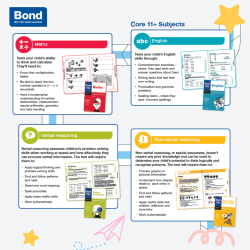
Bond offers essential practice and support for children aged 5 through to 13 who are sitting the 11+, Common Entrance exams or Key Stage 2 SATs. Covers English, Maths, Verbal Reasoning and Non-verbal Reasoning. Focused support for both GL Assessment and CEM 11+ exams.
Oxford University Press: Cambridge IGCSE/O Level/AS & A Level Exam Success Revision Guides
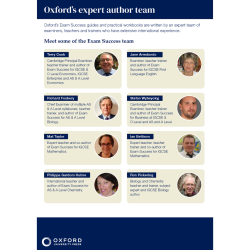
Cambridge Exam Success Guides from Oxford University Press provide unique exam support and revision guidance for Cambridge IGCSE & O Level and AS & A Level students. Matched to the latest Cambridge assessment criteria. Perfect for use alongside Oxford Resources for Cambridge Student Books or as a standalone resource for independent revision.
Oxford University Press: Oxford Reading Club (Over 1000 ebooks with audio)
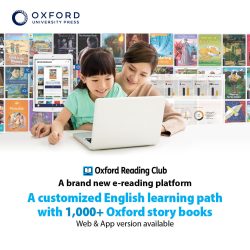
An e-reading platform with 1000+ books across 13 series of Oxford leveled readers including selected titles from Oxford Reading Tree, Oxford Bookworms, Dominoes…etc., ranging from first phonics to classic literature. It offers a smart way to read digital graded readers and improve all areas of English learning for 2-18-year-old. Supports desktop browsers, Phones and tablets.




